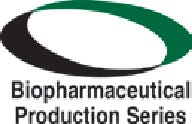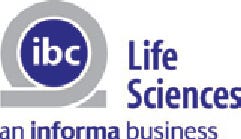IBC's 7th Annual Cell Line Development and EngineeringIBC's 7th Annual Cell Line Development and Engineering
April 1, 2011


As cell line development and engineering mature, this industry faces new challenges and new lines of questioning. Where is the need for innovation? What enabling technologies will provide which companies with advantages over their competition? How can we leverage continued improvements to increase the speed of clinical and manufacturing facilities? How much can we improve understanding and development by applying “CHO-omics” and highthroughput systems? Do we have the tools to process and analyze all the available data? As biosimilars gain momentum, how will they change the landscape of this industry?
Developed by your peers, IBC’s 7th Annual Cell Line Development and Engineering conference provides a forum to answer those questions and bring companies of all sizes closer to their ultimate goal of increasing efficiency and speed of development while reducing costs and resources and optimizing their processes. By joining us, you will hear industry experts and world-renowned academics share lessons learned and new, unpublished data through case studies, strategic discussion groups, and interactive roundtables to provide solutions to your most pressing challenges.
New This Year
Moving to Boston after five years in California, for 2011 IBC developed a program that looks forward to helping companies
Understand and benefit from data generated by the CHO genome sequencing project
Implement automation to improve the speed, quality, and cost of cell line development
Apply genomics tools to enhance understanding and improve product quality and productivity
Explore new engineering strategies to manipulate CHO cells, alter efficacy, and improve uniformity of glycosylation and stability
Implement high-throughput and platform-centered methods to reduce development times and resource requirements and to increase efficiency
Examine several approaches to developing cell lines for biosimilars
Overcome the challenges of producing novel proteins.
Most presentations (84%) contain unpublished new data.
Concurrent strategic discussion groups are part of the program agenda, so attendees won’t have to miss any presentations. The first, “Innovation and Game-Changing Technologies,” is moderated by John Joly, director of early stage cell culture in process development at Genentech, Inc. The second, “Improving Product Manufacturability: Steps to Take Before Cell Line Development,” is moderated by Andy Racher, senior principal scientist in cell culture process development at Lonza.
Special registration is required for the dinner symposium, a highly interactive three-hour roundtable that will encourage participants to share their experiences and concerns regarding such topics as product quality, “-omics” for identifying cell-engineering targets, risk mitigation in dealing with potentially unstable clones, regulatory requirements, and standardized platforms and workflows.
Space is limited, and preregistration is required for a site tour to Biogen Idec’s Bio 2 facility on Friday 10 June at 10:00 Am.
Keynotes
“RIP-Chip: Using RNA-Binding Proteins and MicroRNA Targeting to Study the Human Regulatory Code,” by Dr. Scott Tenenbaum of the University of Albany’s College of Nanoscale Science and Engineering
“Implementing Innovative Strategies into Industrial Bioprocess Development,” by Dr. Robin A. Heller-Harrison of at Pfizer’s laboratories in Andover, MA
“Expression of Bispecific Antibodies in CHO Cells,“ by Dr. Ulrich Kohnert of Roche Diagnostics GmbH
Sessions
Automation: Clone Screening and Data Management… Cell Line Engineering… Towards a More Complete Understanding of the Mammalian Production Systems… Clone Selection and (In)Stability… Approaches to Optimize Process Development… Cell Line Development Approaches for Biosimilars… The Impact of Cell Line Development on Product Quality… Strategies to Increase Candidate Throughput: Risk-Based Approaches to Minimize Resources and Reduce Workflow… Production of Novel Proteins and Vaccines
Featured presenters include Dr. Govind Rao of the University of Maryland on using innovative sensors in cell line engineering; Dr. Wei-Shou Hu of the University of Minnesota on the CHO transcriptome and genome; and Dr. Roy Jefferis of the University of Birmingham (UK) on glycoform profiles.
IBC’s Cell Line Development and Engineering event has earned its reputation as the industry’s best resource for helping companies, of all sizes, increase efficiency and speed of development while reducing costs and resources and achieving process optimization.
You May Also Like






